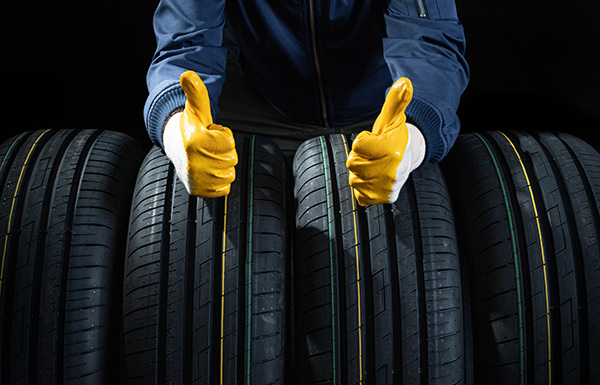
Tire maintenance often gets boiled down to a single task: checking the pressure. And while keeping your tires properly inflated is a key part of vehicle safety, it’s just one piece of a much bigger picture. The condition of your tires affects how your vehicle handles, how long your suspension lasts, and even how much fuel you burn.
Whether you’re commuting across the Denver metro area or heading out for a weekend up in the Rockies, here’s why tire maintenance should go beyond just topping off the air.
Proper Inflation Is Just the Starting Point
Yes, tire pressure is important. Driving with underinflated tires increases rolling resistance, which hurts fuel economy and accelerates wear on the outer tread. On the other hand, overinflated tires wear more in the center and can make your ride feel stiff or unstable—especially on bumpy roads.
But here’s the thing: Even if your pressure is perfect, your tires can still wear unevenly, develop alignment issues, or become unsafe if the rest of your tire maintenance is ignored.
Tire Rotation Keeps Wear Balanced
Not all tires wear the same. Depending on your vehicle’s drivetrain (front-wheel, rear-wheel, or all-wheel drive), certain tires carry more of the workload and wear out faster. For example, in most front-wheel drive cars, the front tires handle both steering and power delivery, so they wear more quickly.
Rotating your tires helps even out this wear by switching their positions at regular intervals—usually every 5,000 to 7,000 miles. Without rotation, you might end up replacing tires in pairs instead of all four, which can lead to uneven handling or traction—especially in snow or rain.
Alignment and Suspension Affect Tread Life
If your car pulls to one side or the steering wheel feels off-center, you could be dealing with an alignment issue. And even if it drives straight, misalignment can still cause irregular tread wear—like feathering or camber wear—that shortens the life of your tires.
You might also feel a vibration at certain speeds, especially if your suspension components are worn. That vibration doesn’t just affect your comfort—it can also cause cupping or scalloping on the tread surface, making tires noisy and unsafe.
If you’ve ever replaced tires and had them start wearing unevenly within a few thousand miles, chances are your alignment or suspension is part of the problem.
Tire Balancing Helps Prevent Vibration
Tire balancing ensures that the weight of the tire and wheel assembly is evenly distributed. When it’s off—even by a few grams—it can cause the steering wheel or seat to vibrate at certain speeds. Over time, this can lead to accelerated wear on suspension components and make your tires wear unevenly.
Balancing is usually done during tire installation, but it should also be checked if you start noticing a consistent vibration that wasn’t there before. It’s a simple fix that can make a big difference in both comfort and tire longevity.
Visual Inspections Can Catch Problems Early
Ever looked closely at your tires lately? You don’t need to be a mechanic to spot early warning signs. Tread depth should always be more than 2/32 of an inch, and if you see cracking, bulging, or exposed cords, those tires need to go—no matter how much tread is left.
Tires can also age out before they wear out. Rubber hardens and degrades with time, especially in dry or high-altitude climates like Denver. If your tires are more than 6 years old, even with decent tread, it might be time to replace them for safety’s sake.
Don’t Forget Seasonal Considerations
Tire maintenance becomes even more important with seasonal changes. Cold weather causes tire pressure to drop, so what was perfectly inflated in summer could be significantly underinflated by winter. And if you swap between summer and winter tires, keeping track of wear on both sets is key to making them last.
Also, road conditions during the winter months can be brutal. Potholes, road salt, and snow buildup can affect alignment and increase the risk of damage to your tires and wheels. Checking them regularly through the season helps avoid trouble.
South Denver Automotive – Full Tire Service in Denver, CO
At South Denver Automotive in Denver, CO, we don’t just check tire pressure—we take a full view of your tires’ health. From rotations and balancing to alignment checks and wear inspections, we help you get the most out of every set. Whether you're gearing up for a road trip or just want a quieter, safer ride, schedule a tire service with us and keep your grip on the road.